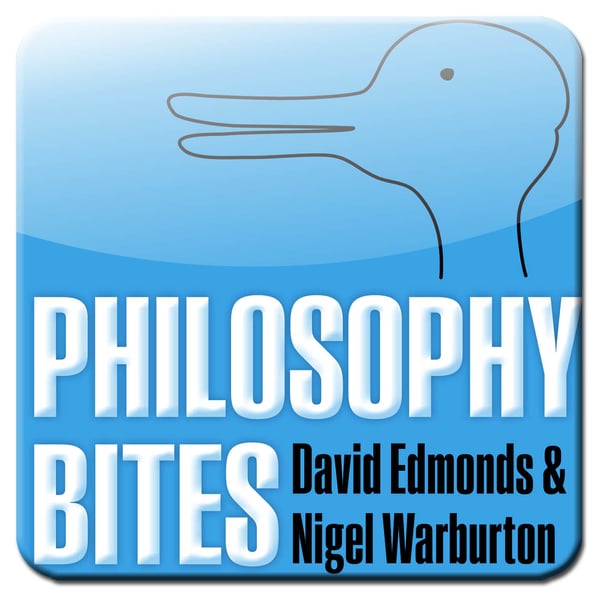Emma Borg on Language and Context
Philosophy Bites
Nigel Warburton
4.6 • 2K Ratings
🗓️ 7 January 2014
⏱️ 21 minutes
🧾️ Download transcript
Summary
How much of the meaning of what we say depends on its context of utterance? Is there a role for literal meaning. Emma Borg discusses these questions with Nigel Warburton in this episode of the Philosophy Bites podcast.
Transcript
Click on a timestamp to play from that location
| 0:00.0 | This is Philosophy Bites with me Nigel Warburton and me David Edmonds. |
| 0:07.0 | If you enjoy Philosophy Bites please support us. |
| 0:10.0 | We are currently unfunded and all donations would be gratefully received. |
| 0:14.0 | For details go to W.W. philosophy bites. |
| 0:18.0 | com. |
| 0:19.0 | Imagine that I'd said to Nigel after an interview. |
| 0:22.0 | That was the best philosophy bites interview we've ever conducted. |
| 0:26.2 | Perhaps I was being ironic or sarcastic, but perhaps I meant it literally. |
| 0:31.1 | If you had more information, you might be able to work out my meaning, say if you'd heard my tone of voice, or if you'd been sitting in on the interview too. |
| 0:38.0 | So what is the relationship between meaning and context? We spoke to Emma Borg. To put her into context, she's an |
| 0:45.8 | expert on the philosophy of language. Emma Borg, welcome to Philosophy Bites. |
| 0:50.4 | Thank you very much, delighted to be here. The topic we're going to focus on is |
| 0:55.0 | language and context. Now what's context got to do with language? Okay I mean that's a good |
| 1:00.4 | question. So let's think about maybe a question that comes slightly before that. Let's think about what it would be to understand a language. |
| 1:08.0 | And we might think how is it when you learn a language like French or German or whatever, how is it that you understand the sentences or the expressions that you're being presented with? |
| 1:17.0 | And one possibility, I guess, would be that what you've learned when you're learning a language is something that |
| 1:23.7 | pairs up the sentences of that language with the meaning in that language. So when |
| 1:28.2 | someone presents you with a bit of this new language what you do is you go to your |
| 1:32.1 | big lookup list and you find the |
| 1:34.7 | sentence in question and you pair it with the meaning and that's it you've got the |
| 1:38.8 | meaning. That might be one way in which language learning could go, but it seems that after a moment's reflection that can't be quite right. |
| 1:46.6 | And it can't be quite right because language looks like it's got this quite surprising feature that we can just generate lots and lots, maybe even |
... |
Please login to see the full transcript.
Disclaimer: The podcast and artwork embedded on this page are from Nigel Warburton, and are the property of its owner and not affiliated with or endorsed by Tapesearch.
Generated transcripts are the property of Nigel Warburton and are distributed freely under the Fair Use doctrine. Transcripts generated by Tapesearch are not guaranteed to be accurate.
Copyright © Tapesearch 2025.

